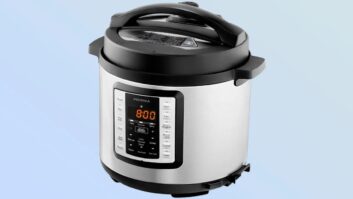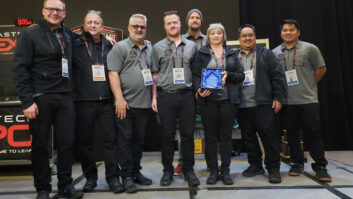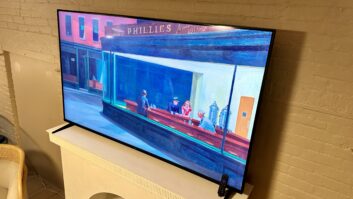SEATTLE -Magnolia Hi-Fi president Jim Tweten said the recent acquisition of his company by national retail giant Best Buy will have very little impact on the look and direction of his stores.
Calling the partnership a “match made in heaven,” Tweten said he would retain the autonomy he has always had in running his business, while benefiting from Best Buy’s deep pockets and vast resources.
The mega chain acquired Magnolia-which operates seven stores in the Seattle area, one in Spokane, Wash., three in Oregon and two in the San Francisco area-for $87 million in December.
Why the buy? A Best Buy spokeswoman said her company decided that “we have a really good hold on a specific demographic, but in order to grow we needed to focus on reaching Gen Y, or Generation Digital, and the high-end customers.” Magnolia Hi-Fi, which reported sales of $105 million last year, was its answer to the up-market CE enthusiast.
As of last month, there were no plans to change signage, product mix or sales strategies within the Magnolia Hi-Fi stores to reflect the partnership.
“It’s a different [market] segment, and we want to keep it different,” Tweten told TWICE. “Best Buy wants us to continue doing what we’re doing. I haven’t seen any downsides. When we had our first meeting with [Best Buy president/chief operating officer] Brad Anderson in September, our values were very similar.”
Tweten and Magnolia senior VP Tom Conrad said they plan to use Best Buy’s market analysts to help them identify the best locations for future stores in the San Francisco Bay area, where they plan to build eight more stores over the next five years. They also hope to leverage Best Buy’s advertising agreements to increase their supplements in local newspapers, as well as share Best Buy’s IT department, warehousing and stocking systems.
While all of these changes are completely transparent to Magnolia’s customers, the chain’s sales force may take notice, Conrad observed. Both he and Tweten said they are very sensitive about how any changes will affect the morale within the company.
“We’ve always been a sales-obsessed company,” Conrad noted. “The last thing we want to do is upset our sales force.” So far, he said, the sales team has adopted a wait-and-see attitude.
“One of the inevitable challenges we have is that we know, going forward, that Magnolia will make changes-as all businesses do-and it’s inevitable that people will perceive those changes to be a result of Best Buy,” Conrad said.
Details are still being worked out on whether Magnolia will have its own profit and loss accountability, Tweten said. The Best Buy spokeswoman said it is taking some time to work out the financial details because the finances of Magnolia and sister subsidiary Musicland are recorded on a calendar year, while Best Buy’s is based on a fiscal calendar.
Magnolia began with Tweten’s father Len, who opened the Magnolia Stationers and Camera Shop in the Magnolia section of Seattle in 1954. The transition to a high-end CE store was completed in the mid-1960s, with video added in 1980 and mobile audio joining the mix in 1985, the younger Tweten said.
Tweten explained that his father, now in his 70s, decided to divest his holdings in Magnolia last year. Because Jim wanted to continue to expand the store and his father didn’t want to take the financial risk at his age, they decided to look for partnership opportunities.
Tweten first considered partnering with the Tweeter Home Entertainment Group, but was eventually presented with the Best Buy deal, which he said was more attractive.
Had the deal gone through with Tweeter, Conrad said, there would have been many more changes. For example, some of the staff would have been laid off, and more effort would have been spent to make the product mixes consistent.
Currently in a quiet period, Tweten couldn’t comment on sales for the first quarter, except to say the business is doing very well. Best Buy’s spokeswoman noted that “being in the early stages of the digital product cycle has helped us,” compared to other industries hit by the slumping economy.
Down the road, she said, “Best Buy sees a potential for Magnolias in other areas of the country, 100-plus over 10 to 15 years. So, it’s not going to be an aggressive expansion.”
On the product front, projection TVs and loudspeakers comprise Magnolia’s two best-selling categories, in that order, said Rick Moore, retail store manager at one of the Seattle stores. The company also places great emphasis on its custom-install department, which accounts for 15 percent of dollar volume.
Speculating on what the consumer electronics market will look like 10 years from now, Tweten said he expects some changes in the landscape, especially in the role of the custom installer. But, he maintained, “With us being so specialized, we’ll definitely be survivors.”












